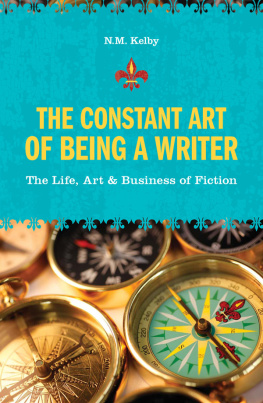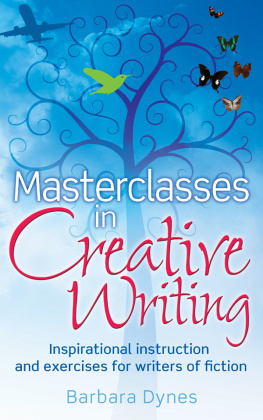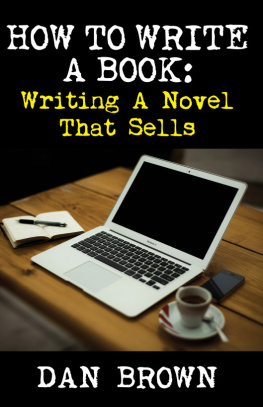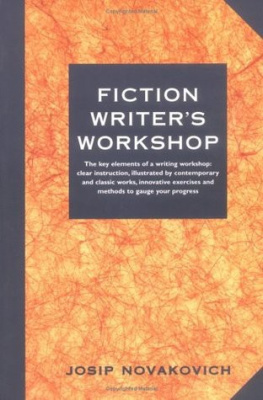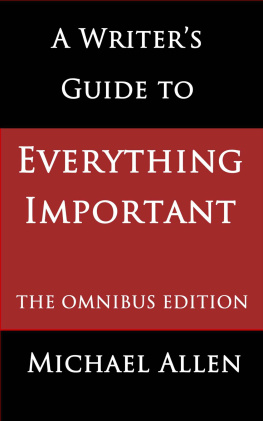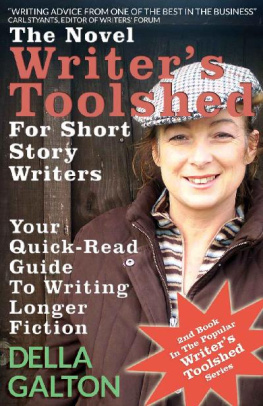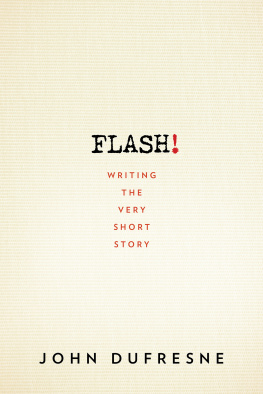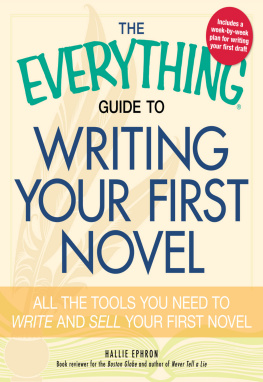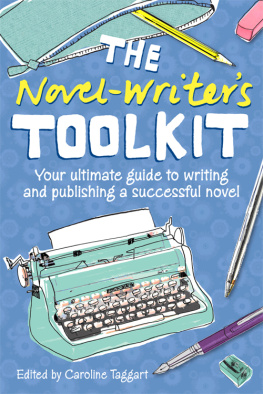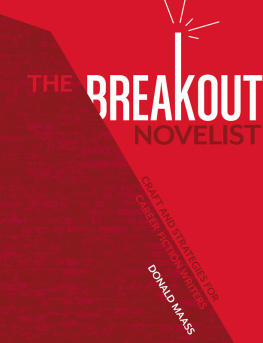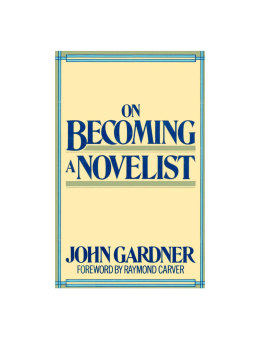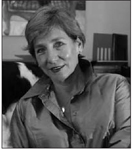If you've read this book already and you're here trying to figure out who my agent is I'll make it easy Lisa Bankoff at ICM. She is wise, funny, and loyal beyond all good reason. She also doesn't like chocolate, so she can't be bribed. If you want to query her, bring your best work and your most professional attitude, and she'll do the same.
You should also know that not only did my editor, Kelly Nickell, make this book possible, she also made it an exciting and enriching project to do. She is a joy to work with.
If you're reading this because you're looking for a place to get a lot of work done, a bulk of this book was written while in residence at the Santa Fe Art Institute. Staff members Gabe Gomez and Michelle Laflamme-Childs worked hard to make our time there productive and also convivial. They know where to get the best margaritas in town.
Of course, as is standard in most acknowledgment sections, I do want to thank my family who gives new meaning to the term patron of the arts, in addition to all my friends and mentors who helped me with this book and with my journey in the world.
This simple line of thanks doesn't make up for all the ruined dinners and last-minute cancellations, but it's all I've got. Besides, they all know how much they mean to me. Books come and go, as does fame, but their love keeps me inspired, hopeful, and working.
And finally, I thank the readers. Without readers, I would be just another madman typing away in the dark.
INTRODUCTION:
A Life in Words
At twelve thousand square feet, Kincaid's Billiards is larger than any nearby church, but it's just as filled with prayer, desire, and the need for one or another type of salvation.
This is where I come when words logjam in my brain. I play for the need of the perfect moment, and that perfect sound the clack that pure note of ball on ball. I play because the game reminds me that hard work and practice do pay off. I play because the distraction of the sport, which is similar to the process of writing, makes me see my work in a new light. I play because I like to win.
I tell my family I'm doing research.
The back room of Kincaid's is where the real players are found. They circle the table silently. Calculate the angle. Consider the calibration. Lean in. Show no mercy.
To me, it's just like a writer facing the page.
Billiards is not a gentleman's game. Mark Twain once said it destroyed my naturally sweet disposition. Still, many writers are drawn to it. George Plimpton was so obsessed that every party at his apartment ended with a game. The next morning, he had the staff of his Paris Review analyze maps of shots taken before magazine business could begin. Even Shakespeare had Cleopatra try to roust up a game. (Act 2, Scene 5: [L]et's to billiards: come, Charmian.)
I can understand. Pool is a game of nerve and bone. Of geometry and architecture. And lies. Lies you tell yourself, lies you tell others. And you must always practice. Always.
How is this not like writing?
With a story, or a novel, you begin with what is crucial. When you break the rack, it's the same. You are setting the tone, establishing a style. Then you have choices, so many angles to play. You have to be careful and choose the one you are the most able to capitalize on, the most crucial one. You have to make each shot count. As in writing, everything you do matters.
When I break the rack, I never go head-on. I always angle the rack, like I angle a story. I like to begin a little off -kilter, make it look impossible; it gives you more leverage. I always try to hit the cue ball as hard as I can, with authority and power. If I can put some English on it, a slight sidespin, I do it. Like an opening paragraph, how you break announces who you are, what your game is, what's at stake.
I ignore the easy shots. Any variation on a tricky pattern hitting the rail first and then caroming back into the same rail I try. I have to because it's all about the thrills, after all. The only problem is that I'm not very good at pool. I'm taking a huge risk with this style of play. And so, as with style in a story, I have to pay off the fancy shots. Always. The ball better end up in the pocket. Or, at the very least, create a problem cluster of balls that will be impossible for my opponent to overcome.
I try never to waste a shot. Never waste a word on the page.
Robert Byrne, a master player and teacher, has written twenty-three books about the game. He tells me that billiards, like writing, takes a certain mindfulness: Philip Roth, in dismissing writers who talk about the mystical elements in writing, claimed that writing is an act of controlled intelligence. The writer is always in conscious control as is the player.
So when I lean across the felt and let the possible trajectories play out in my head, I think of Roth, of his writer in conscious control. I think about how to shape whatever story or novel I'm working on at the moment, how to see it from all different angles, as I see the shot from all angles.
All I want is that perfect peal of ball on ball. The perfect clack.
So I try to go big, try to make the impossible seem easy. More often than not, I learn a lesson in humility. But I keep on despite all my failures, as I keep writing. Pool reminds me that a passive defense is avoiding defeat, but an aggressive one improves your chances of winning.

